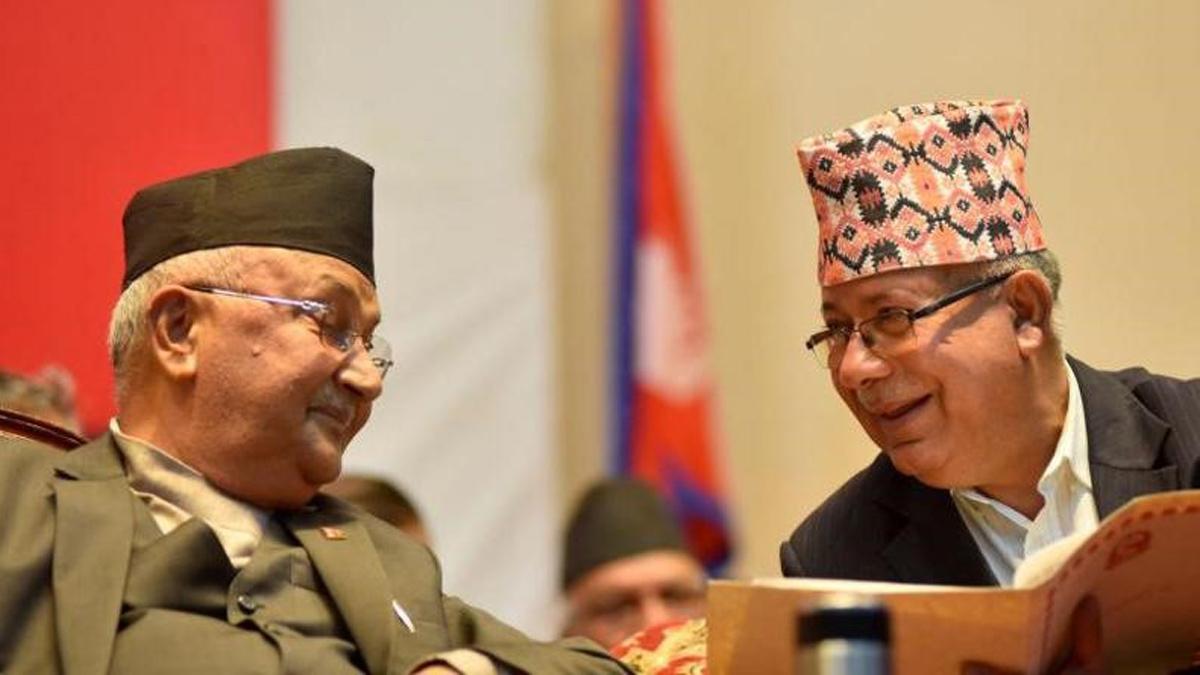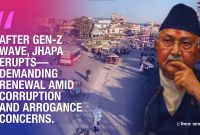Did PM Oli Secretly Stop the India-Pakistan Conflict? His SHOCKING Claim Revealed!
The Grand Peacekeepers: Oli and Nepal’s Self-Proclaimed Global Peacemakers

In a world where international diplomacy often seems like a game of thrones, two Nepali political figures have recently emerged as self-declared architects of global peace. Prime Minister Khadga Prasad Sharma Oli and former Prime Minister Madhav Kumar Nepal have both made bold claims about their roles in resolving major international conflicts. However, upon closer examination, their assertions appear to be more about self-promotion than actual influence.
Khadga Prasad Sharma Oli: The Self-Proclaimed Peacemaker of South Asia
Prime Minister Oli has recently taken credit for encouraging India and Pakistan to cease hostilities during their latest border skirmishes. Tensions between the two nuclear-armed neighbors did escalate, leading to missile strikes and subsequent de-escalation around early to mid-May 2025. Specifically, reports indicate an increase in tensions following an attack near Pahalgam on April 22, 2025, which tragically resulted in civilian deaths. This was followed by actions such as India's "Operation Sindoor" targeting alleged militant infrastructure. A ceasefire or de-escalation was indeed reported around May 10, 2025, although tensions and accusations have reportedly continued.
Prime Minister Oli has publicly stated that the conflict between India and Pakistan stopped after Nepal urged both sides to exercise restraint. Speaking at an event in Lumbini on May 12, 2025, on the occasion of Buddha Jayanti, Oli claimed that a war situation had emerged but did not escalate due to calls for calm and restraint. He stated that Nepal had prayed the situation would not turn into war and had also held talks with both countries, receiving commitments not to escalate. He thanked both nations for exercising restraint.
While Prime Minister Oli has made these statements attributing the de-escalation, at least in part, to Nepal's efforts and communication with India and Pakistan, concrete evidence detailing the nature and extent of Nepal's intervention and its direct impact on the decisions made by the two nuclear powers remains limited in public reporting. Nepal, situated geographically near the two nations, naturally has a vested interest in regional stability and often calls for peace, but directly claiming responsibility for averting a war between India and Pakistan is a significant assertion.
Madhav Kumar Nepal: The Unseen Mediator of the Korean Peninsula
Former Prime Minister Madhav Kumar Nepal has also made headlines with his assertion that he initiated dialogue among North Korea, South Korea, and the United States before the historic 2018 Singapore Summit between President Donald Trump and Kim Jong Un.
The timeline for the lead-up to the Singapore Summit, which took place on June 12, 2018, involved a complex series of diplomatic engagements. Following months of heightened tensions, significant developments occurred in early 2018. North and South Korea held a summit on April 27, 2018, where they agreed on denuclearization goals and a desire to formally end the Korean War. There were also high-level exchanges between US and North Korean officials, including a secret meeting between then-CIA Director Mike Pompeo and Kim Jong Un in April 2018. Preparatory talks involving various stakeholders, including unofficial "track 1.5" or "track 2" discussions, also took place.
Reports indicate that former Prime Minister Madhav Kumar Nepal visited North Korea in August 2017, leading a parliamentary delegation. Following this visit, he reportedly suggested that he had played a role in bringing Kim Jong Un to the negotiating table with the United States. In late 2018, after the Singapore summit, there were reports that the US Secretary of State Mike Pompeo had sought Nepal's help in encouraging North Korea towards denuclearization, suggesting the US believed Nepal might have some leverage or unique relationship with the North Korean leadership.
While Madhav Kumar Nepal did visit North Korea and later made claims about his influence, the documented diplomatic efforts leading directly to the 2018 Singapore summit primarily involved direct engagement between North and South Korea and the United States at high levels, facilitated by various international actors and processes. Attributing the initiation of the crucial dialogue that led to the Trump-Kim summit solely or primarily to Nepal's efforts prior to the widespread diplomatic push appears to be an overstatement when viewed against the detailed timeline of events involving the principal parties and major global powers.
Public Reaction: A Mixture of Amusement and Skepticism
The public response to Oli and Nepal's claims has been a blend of amusement and skepticism. Social media platforms are reportedly abuzz with memes and satirical posts mocking their self-proclaimed roles as global peacemakers. The irony is not lost on the public, as both leaders' assertions seem to be more about personal aggrandizement than actual diplomatic achievements. People are questioning the degree of influence a small, landlocked nation like Nepal, even at the prime ministerial level, could realistically exert on the actions of nuclear-armed powers like India and Pakistan or on the complex geopolitical dynamics of the Korean Peninsula involving the United States.
Adding to the irony, there are indeed humorous acknowledgements of Prime Minister Oli's self-proclaimed initiative in establishing peace in South Asia, with some jesting that he should be given the Nobel Peace Prize for his supposed role in the recent India-Pakistan de-escalation. This highlights the public's perception that the claims are exaggerated and perhaps intended more for domestic political consumption than as a reflection of Nepal's actual impact on these major international events.
Conclusion: The Need for Genuine Diplomacy
While it's essential to acknowledge the efforts of leaders who genuinely strive for peace, it's equally important to critically assess their claims. In the cases of Oli and Nepal, their self-proclaimed roles in resolving significant international conflicts, while possibly stemming from a desire to highlight Nepal's commitment to peace and its place on the global stage, lack substantial credible evidence to support the notion that their actions were the primary drivers of de-escalation or dialogue in the instances they cited.
Prime Minister Oli's assertion about influencing the recent India-Pakistan de-escalation comes after a period of renewed tension and subsequent calm, but placing Nepal's calls for restraint as a decisive factor in the actions of two major military powers requires a leap of faith not readily supported by available information. Similarly, former Prime Minister Madhav Kumar Nepal's claim about initiating dialogue before the 2018 Trump-Kim summit appears inconsistent with the widely documented timeline of high-level diplomatic exchanges that directly paved the way for that meeting.
As citizens, it's our responsibility to seek out the truth and hold our leaders accountable for their actions and statements. Exaggerated claims of global influence, while potentially boosting domestic image, do little to enhance a nation's genuine diplomatic standing. Perhaps it's time for Nepali leaders to focus on tangible contributions to diplomacy and regional cooperation, rather than self-aggrandizing narratives about single-handedly resolving major international crises, however amusing the public finds the notion of Nepal's Prime Minister receiving a Nobel Peace Prize for averting an India-Pakistan war.




![From Kathmandu to the World: How Excel Students Are Winning Big [Admission Open]](https://www.nepalaaja.com/img/70194/medium/excel-college-info-eng-nep-2342.jpg)
